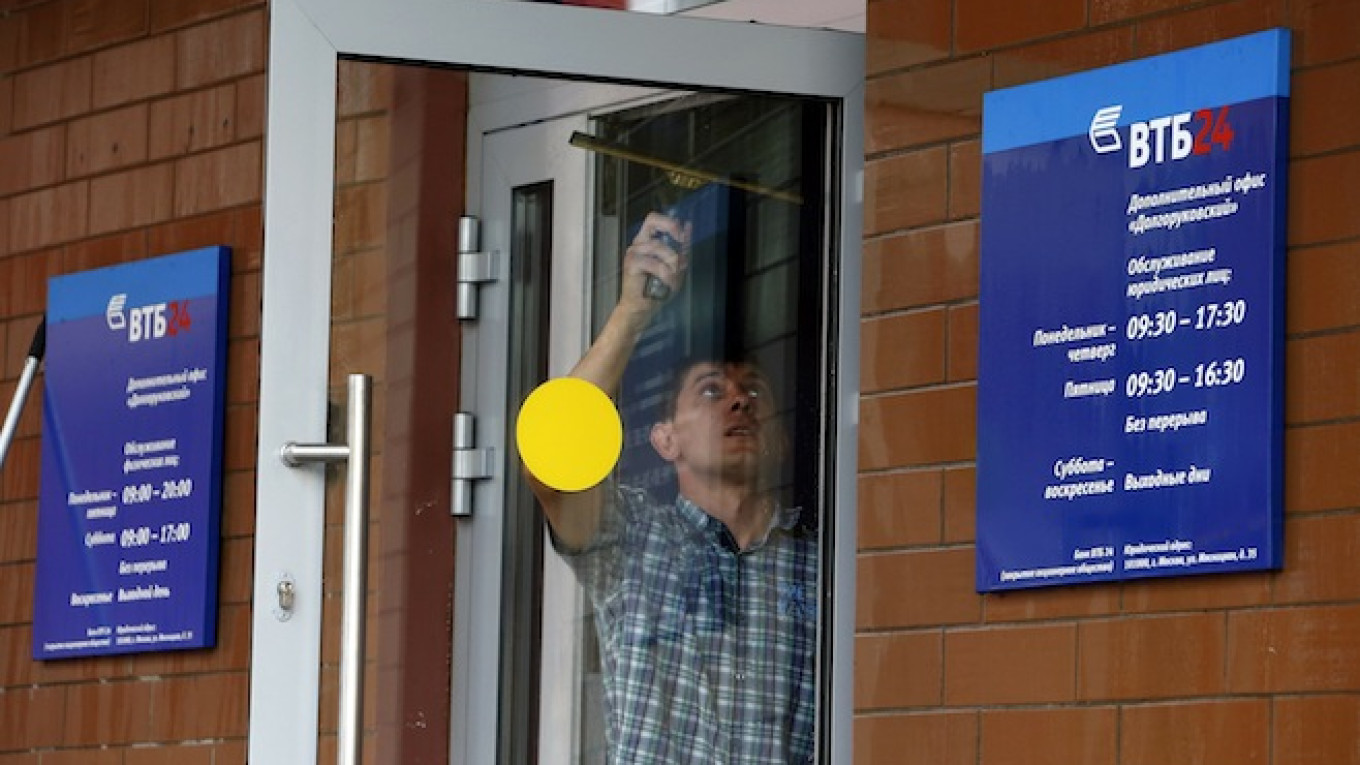A possible European Union ban on purchases of new shares or bonds issued by Russian banks would apply only to institutions in which the Russian government has a more than 50 percent stake, EU diplomats said on Thursday.
The ban, which would include also the possibility of listing of any new instruments of Russian state-owned banks on EU stock exchanges, would be part of a list of new sanctions on Moscow over its role in the conflict in eastern Ukraine.
"Restricting access to capital markets for Russian state-owned financial institutions would increase their cost of raising funds and constrain their ability to finance the Russian economy," one EU diplomat, who spoke on condition of anonymity, said.
"It would also foster a climate of market uncertainty that is likely to affect the business environment in Russia and accelerate capital outflows," the diplomat said.
The ban, if agreed by ambassadors of EU countries on Thursday, would apply to Russian state-owned bank debt and equity with maturities longer than 90 days and cover both primary and secondary market purchases of instruments issued after the ban enters into force.
EU diplomats said that last year 47 percent of the bonds issued by Russian public financial institutions were issued in EU financial markets, amounting to 7.5 billion euros ($10.1 billion) out of the total 15.8 billion euros ($21.3 billion) issued.
Diplomats said that in a proposal submitted to the EU ambassadors as the basis for their discussions on Thursday, the European Commission proposed an embargo on arms trade with Russia.
Russian arms exports to the EU are worth 3.2 billion euros ($4.3 billion) while EU arms exports to Russia are worth about 300 million euros ($404 million), diplomats said. The embargo would be reversible.
Under consideration is also an embargo on exports to Russia of dual-use goods for military use, military end users or mixed end-users that amounts to 20 billion euros ($27 billion) a year, diplomats said. That measure would be reversible and scalable, they said.
The EU is also considering a ban on energy technology, but only for long-term production not to disrupt current supply, diplomats said.
See also:


